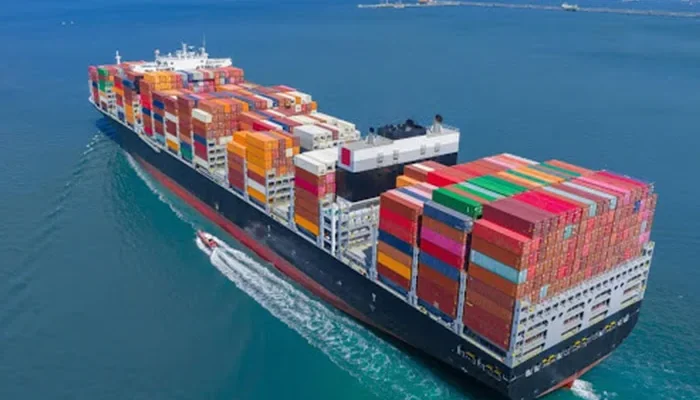Selecting from among the top freight forwarding companies is essential to achieving optimal supply chain efficiency for any business. Because there are so many choices, it’s important to know what things most affect this decision. This piece goes into detail about important things to think about that will help businesses improve their logistics and make sure deliveries happen on time.
Understanding Freight Forwarding
Freight forwarding is an important part of logistics because it makes it easier for things to move from one place to another. To find a good shipping partner, you need to know what freight handling is and what it does.
What Is a Freight Forwarder?
When someone needs to send something, a freight forwarder helps them get it to the right place. It doesn’t ship the goods; instead, it coordinates the process with carriers, customs officials, and other important parties. Freight forwarders take care of paperwork, make sure rules are followed, and offer services like tracking and insurance. They help with shipping both inside and outside of the country.
The Role of a Freight Forwarder
Freight forwarders play several important parts in the shipping process, such as
- Planning Shipping Routes: Freight forwarders figure out the best ways to move goods by looking at things like cost, travel time, and where the goods need to go.
- Negotiating freight charges: Freight forwarders talk to carriers about rates to get their customers the best deals.
- Taking care of paperwork: Freight forwarders make sure that all shipping documents are in order and that foreign trade rules are followed.
- Organizing Logistics: Freight forwarders organize all the logistics of shipping, from picking up the goods to storing them and delivering them at the end.
- Taking care of customs clearance: Freight forwarders make sure that all the necessary paperwork is in order and that all taxes are paid.
- Offering Cargo Insurance: Freight forwarders can protect your goods from loss or damage by offering cargo insurance.
A business can improve its logistics by choosing a freight forwarder who knows all of these jobs inside and out.
Considerations for Selecting a Freight Forwarder
There are several important things to consider when choosing the right freight forwarder. Businesses can be sure that the partner they choose will meet their transportation needs by looking at these factors.
Experience and Reputation
A freight forwarder’s ability to handle complicated shipping depends a lot on how much experience they have. Forwarders who have been around for a while usually have strong networks and a good knowledge of the different shipping routes. To get an idea of their image, you might want to read online reviews and testimonials from past customers. A trustworthy freight forwarder shows they are reliable by providing consistent service, making deliveries on time, and being able to solve problems quickly and effectively.
Service Offerings
Freight forwarders offer many services that can affect how processes are run. Usually, these services include clearing customs, insuring packages, storing goods, and managing the supply chain. Companies should check with a forwarder to see if they can meet their unique needs. Make a list of the services you need and then compare different forwarders to make sure they can help you reach your business goals.
Cost Structure
Before hiring a freight forwarder, you need to have a good idea of how the costs work. Costs may include insurance, customs duties, transportation fees, and extra fees for unique services. Get prices from several forwarders so you can compare them and find any secret fees. Businesses can make more accurate budgets and avoid surprises during the shipping process if they understand the pricing plan.
Evaluating Freight Forwarder Credentials
Checking the qualifications of a freight forwarder is important for making sure you have a reliable logistics partner. Businesses need to make sure that possible freight forwarders have the right skills to do the job well.
Licenses and Certifications
Verify that the freight forwarder holds appropriate licenses and certifications. Compliance with regulations indicates professionalism and accountability. Freight forwarders often need a Federal Maritime Commission (FMC) license for ocean freight in the U.S. Additionally, check for certifications from organizations like the International Federation of Freight Forwarders Associations (FIATA) or the Transport Asset Protection Association (TAPA) to ensure adherence to industry standards. These credentials signify competency in regulatory compliance, safety, and best practices.
Insurance Coverage
Assess the extent of insurance coverage provided by the freight forwarder. Strong insurance policies protect businesses from loss or damage during transit. Forwarders should offer cargo insurance, which covers potential damages incurred during shipping. Inquire about the policy’s terms, limits, and exclusions. Understanding these details helps businesses evaluate the level of risk mitigation offered, ensuring that valuable shipments receive proper protection throughout the logistics process.
Communication and Customer Service
When picking a freight forwarder, it’s important to make sure they can communicate clearly and provide good customer service. These factors have a big effect on the general shipping experience and the dependability of logistics operations.
Importance of Clear Communication
Businesses and freight forwarders can better understand each other when they can talk to each other. It makes sure that everyone is on the same page about shipping standards, deadlines, and any problems that might come up. From picking up the goods to delivering them, freight forwarders should keep you informed at all times. Giving regular updates on the situation and answering questions quickly build trust and reduce doubt. Businesses might find it helpful to ask possible forwarders about their tools and ways of communicating to make sure they can get real-time updates and alerts when needed.
Response and Support
Responding quickly is an important part of customer service. A freight forwarder who puts customer service first can quickly handle concerns and fix problems during transit. Businesses should figure out how fast a forwarder is by talking to them for the first time. Responders who are quick and thorough are often more reliable in emergencies. Also, looking at support choices like having dedicated customer service reps or being available 24/7 shows how committed the forwarder is to customer service. Respondent freight forwarders help make shipping run more smoothly, which improves business efficiency in the long run.
Conclusion
Picking the correct freight forwarder is very important for maximizing planning and ensuring that the supply chain runs smoothly. Businesses can find a reliable partner that meets their needs by carefully examining the partner’s experience, qualifications, and services. Good communication and strong customer service are also essential for keeping people’s trust and taking care of problems quickly.
Comparing and evaluating the skills of several forwarders improves operational efficiency and keeps important shipments safe. When a business hires the right freight forwarder, it can confidently handle the complicated world of shipping and reach its logistical goals.
Pedrovazpaulo Executive Coaching: Unlocking Potential with Its Power









Comments